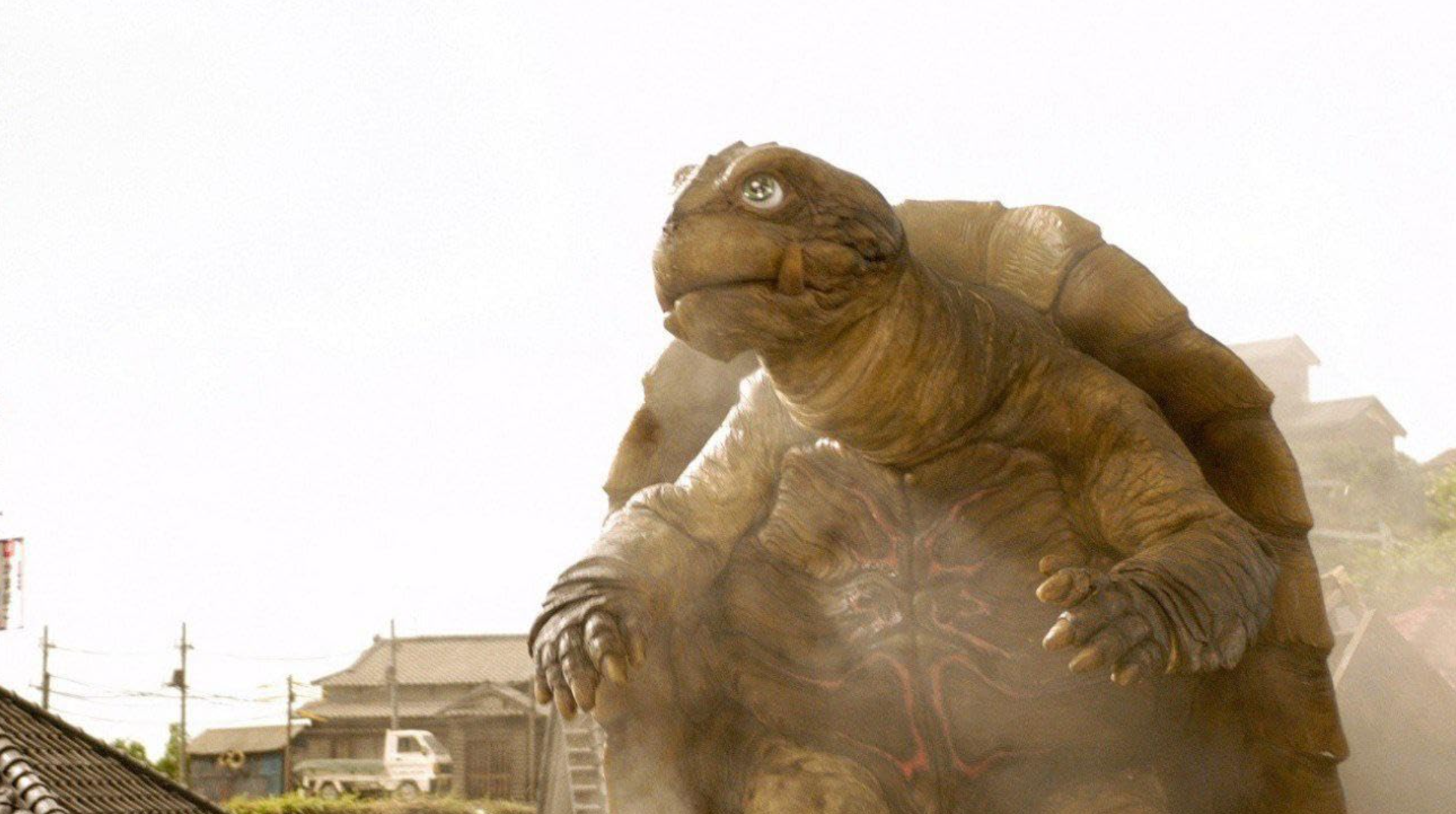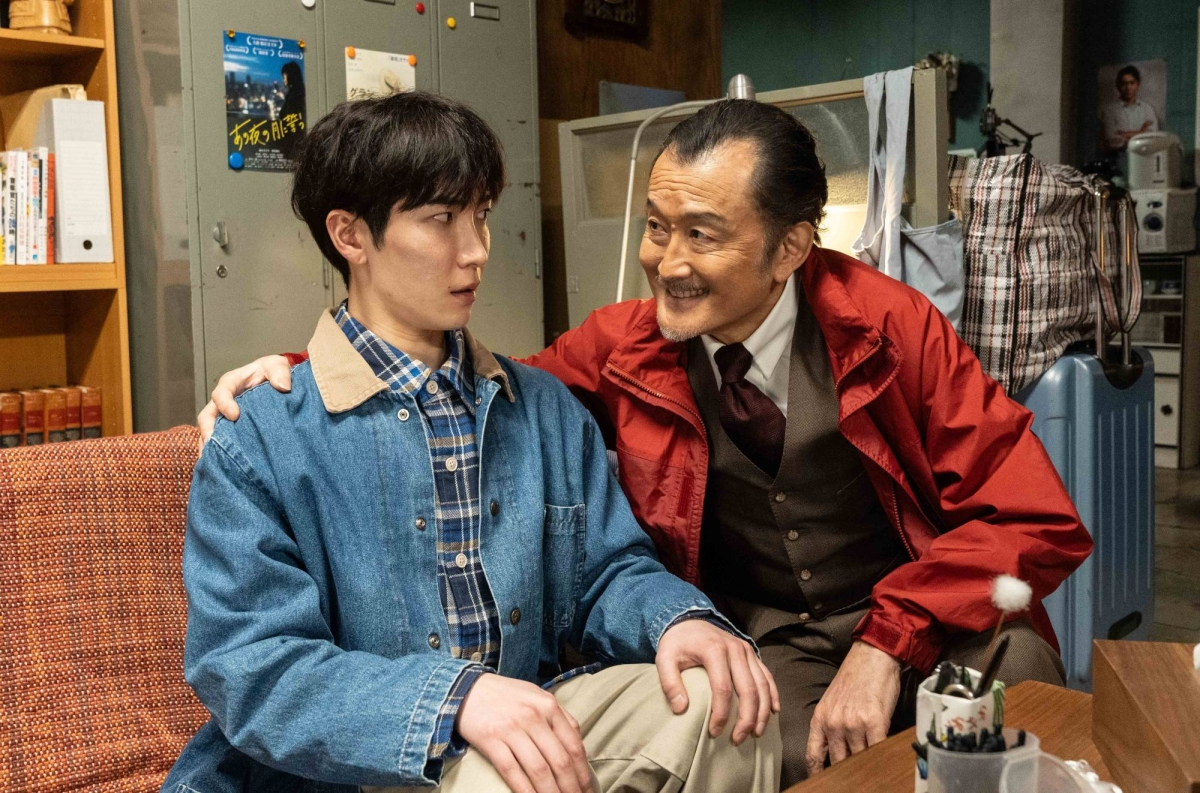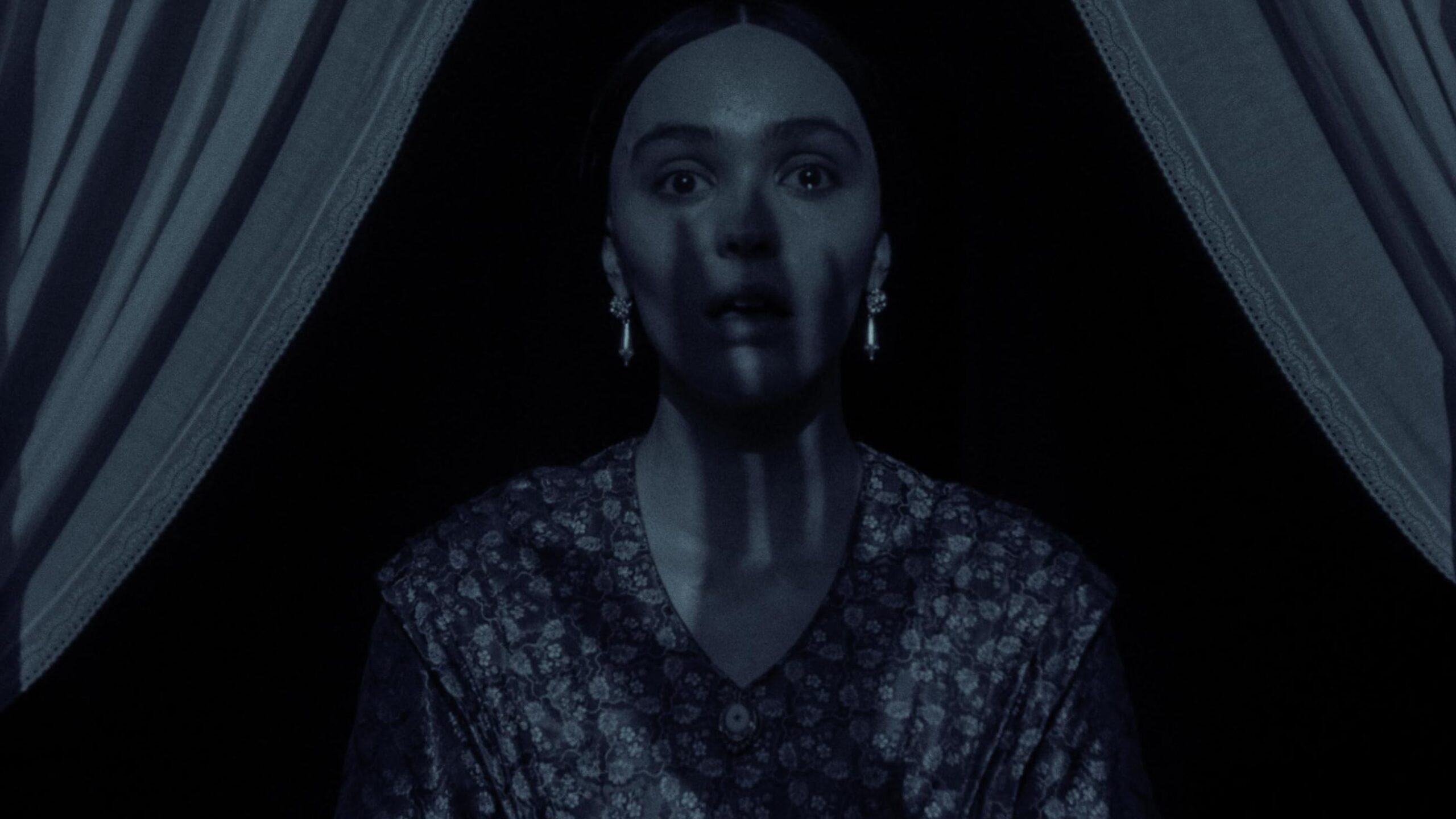2025 saw the release of Shinji Higuchi’s newest tokusatsu feature: a remake of the 1975 crime and suspense thriller from Toei, The Bullet Train (aka Shinkansen Explosion). Titled Bullet Train Explosion, the tokusatsu director returns to honor the legacy of the high-octane Junya Sato classic that has gone to inspire the likes of Jan de Bont (Speed), Michael Mann (Heat), and Tony Scott (Unstoppable). All the more fitting, as 2025 marks the 50th anniversary of The Bullet Train– thus, there is no better time to remind audiences of one of Japan’s most globally seminal films ever conceived.
Shinji Higuchi has had a lengthy career in tokusatsu up to this point. From being mentored by the likes of legends such as Teruyoshi Nakano and Koichi Kawakita, to directing the special effects for Shusuke Kaneko’s Gamera trilogy, and becoming an award-winning director for his efforts behind Shin Godzilla and Shin Ultraman, he has sought to bring the medium to the next level. Admirable instances of his contributions in tokusatsu include, but are not limited to suggesting that Godzilla outta be filmed from low angles during The Return of Godzilla as a special effects assistant to Nakano, and blending practical set pieces and suitmation with digital enhancements through a method he calls “Hybrid” for his mightily ambitious Attack on Titan duology.
If there is one thing that is noteworthy about Higuchi, the man really knows how to elevate drama and spectacle with a charming, animated, and even clever sense of theatrics. In the case of Bullet Train Explosion, this cannot be any truer than it already is.

Bullet Train Explosion has a simple, yet very intriguing premise: a bomber holds a Shinkansen liner for ransom, as authorities must sniff out whoever is behind it. If the speed of Hayabusa No. 60 drops below 100 km/h, then the liner is blown sky-high with everyone still on. It is an inspiring set up that plays on the tension of saving face in the midst of disaster, and people coming together to unite during times of crises.
Right out of the gate, the movie pulls you in with a visceral impression of the high-octane thriller that is about to unfold. Bullet Train Explosion boasts cinematography that is claustrophobic and sweeping, which is helped by fast-paced editing that goes back and forth between Hayabusa No. 60 and the East Japan Railway Company. As a result, this approach makes for an utterly engaging thrill ride that pays wonderful tribute to 1975’s The Bullet Train, while also being a unique experience in of itself.
Those already familiar with Higuchi’s work, if not tokusatsu films of the past decade, may find this movie’s style similar to that of Shin Godzilla, to the point where one may even call Bullet Train Explosion “Shin Godzilla on a Train.” Much like the 2016 feature, this visual and narrative identity harkens back to director Higuchi’s love for the disaster films of the Showa era, namely 1973’s Submersion of Japan (which he also remade in 2006).
Another one of Higuchi’s filmmaking quirks that is present is a vibrant cast of characters. Tsuyoshi Kusangai, a regular at this point, plays the level-headed Conductor Takaichi, who becomes the vessel of the viewer to absorb the tension that occurs when having to ensure the safety of his passengers, whilst getting to the bottom of this terrorist act. Alongside him are a variety of other colorful personalities in the form of your average hard-working citizens, influencers, and politicians who are all memorable in their own right– especially from characters portrayed by Satoru Matsuo, Jun Kaname, Hana Toyoshima, and Machiko Ono.
While Kusangai delivers a strong performance as our headstrong conductor, props must also be given to Kanata Hosoda as Conductor Fujii, and Rena Nonen (aka Non) as Driver Matsumoto in how they also compliment the story’s stressful scenario. Another standout is Takumi Saitoh (who some of you may recall as Shinji Kaminaga from Shin Ultraman) as Officer Kasagi, who has no choice but to be the middleman between Takaichi and the mysterious bomber.

One of the things that makes Bullet Train Explosion an achievement is that it is also the first ever feature film to be produced in collaboration with the East Japan Railway Company. Not only is the film shot on a real Shinkansen liner, but there is a neat blend of depicting Hayabusa No. 60 as either a CGI render, a full-scale model, or a 1/6 scale model– all of which are used incredibly well, and dare I say, almost seamless, as the execution of their scenes only drive the suspense further.
And this is all tied together by such a versatile score by both Yuma Yamaguchi and Taisei Iwasaki, as they really capture the pure anxiety and sense of hope in this thriller. This is only amplified by the fact that the sound design of Bullet Train Explosion was done with the use of Dolby systems, making the experience feel even more grand.
But, while Bullet Train Explosion may stand well enough on its own, it is surprisingly rewarding for fans of the 1975 original. In fact, as revealed by the movie’s launch trailer, it turns out that Bullet Train Explosion is not a remake, but a sequel to 1975’s The Bullet Train, making explicit references to the Hikari 109 incident. Without going into spoilers, the film makes tremendous use of brilliant callbacks that wound up carrying more weight than one would expect. And interestingly enough, these ties to The Bullet Train actually further enhance the film into being its own unique experience, as it tackles the moral ambiguity of the culprit’s vengeful actions from a different, modern-day angle in a way that exposes the failings of a faulty system.

Although, as we take in the unprecedented accomplishment of such a tokusatsu feature in this day and age, we must address the elephant in the room. A hot topic that has surrounded Bullet Train Explosion, is the fact that Shinji Higuchi found himself being denied funding for the production for some time– that is, until Netflix stepped into the picture. As generous of a gesture this was, this unfortunately makes for a less optimistic sign that the future of tokusatsu in film may find itself dwindling. It is very clear that Higuchi made Bullet Train Explosion with the intent of a theatrical presentation, despite its fate being held at the hands of streaming. If more tokusatsu films like this were to be developed, there is now a high possibility that they may find themselves under a similar set of conditions.
Higuchi has noted in an interview with Variety that tokusatsu is a medium that is often looked down upon– even during his early career. This could very well be a contributing factor as to why funding Bullet Train Explosion was challenging, in addition to the fact that not many audiences nowadays are as nostalgic for the 1975 original, and the idea of acquiring clearance to film on an operating Shinkansen liner would have posed a risk.
As time went on, it can be argued that tokusatsu in film has been a victim of circumstance, either directly or indirectly. If it hadn’t been for the success of Gareth Edwards’ Godzilla from 2014, Toho would not have considered making Shin Godzilla. As much of a technical achievement as the Attack on Titan movies were, they were unfortunately met with plenty of heated vitriol, mainly from viewers outside of Japan who were severely untrained in how tokusatsu productions function. And as successful as Higuchi and Hideaki Anno’s “Shin Japan Heroes Universe” has been, each subsequent live-action film has only earned less and less in box office returns in addition to their niche status. (The latter two, Shin Ultraman and Shin Kamen Rider, had production cycles that were affected by the COVID-19 pandemic.) With that said, would movies like Godzilla Minus One have been made if Toho had not planned to push for global expansion the same way Tsuburaya has?
All of these factors make it a miracle that Bullet Train Explosion even exists– in the same way that can be said for Higuchi’s other preceding work since the 2010’s. There is no doubt he has deep respect for the art of tokusatsu, as well as films like The Bullet Train. And this love shines through in his modernized take that will undoubtedly please both fans of the original and the uninitiated. Bullet Train Explosion is an intense and very satisfying thriller that is full of excitement and drama that will keep you locked in from start to finish. May Shinji Higuchi continue to push the limits of what tokusatsu films are capable of.
Bullet Train Explosion is now streaming on Netflix.





